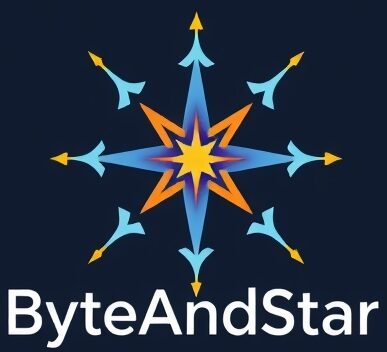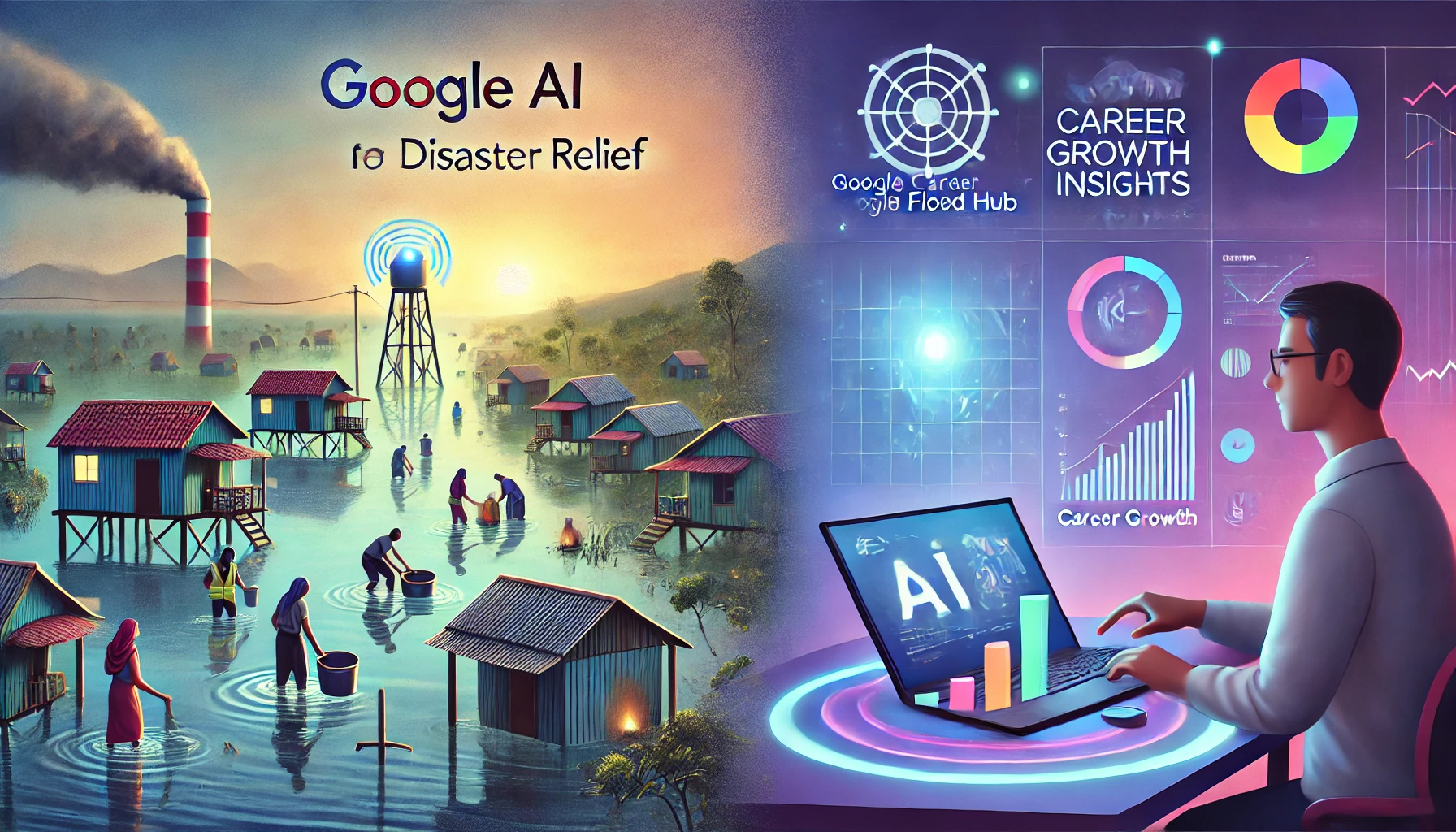Google AI for Disaster Relief and Career Growth: A Tech Revolution in Response 🌎💡
It was a stormy night in Assam, India. Rajiv, a farmer, stood by the riverbank, fearing the worst. Monsoon floods had ravaged his village before, leaving destruction in their wake. But this time, something was different—he had a warning. His phone buzzed with an alert from Google AI for Disaster Relief and Career Growth, predicting a potential flood in the next 48 hours. With this information, he evacuated his family and livestock, saving lives and livelihoods. 🙌
Meanwhile, across the world in Venezuela, Maria, a young graduate, faced an entirely different crisis—economic instability. She had lost her job, and opportunities seemed bleak. Then, she discovered Google AI for Disaster Relief and Career Growth, an AI-powered tool by Google that helped her identify in-demand skills, guiding her toward an online certification that eventually landed her a remote job. 🌟
These are not isolated stories. AI-powered tools like Flood Hub and Career Dreamer are quietly transforming crisis management and individual empowerment worldwide. Let’s dive into how these innovations are making a real difference. 👇
Flood Hub: AI as a Life-Saving Guardian 🌊🚨
Floods affect over 250 million people globally each year, causing economic losses exceeding $40 billion. Traditional forecasting methods often lack accuracy, especially in vulnerable regions. This is where Google AI for Disaster Relief and Career Growth steps in. 🏠💦
How Does Flood Hub Work? 🏗️📊
Powered by machine learning and real-time hydrological data, Flood Hub analyzes rainfall patterns, river levels, and terrain models to predict floods days in advance. It provides localized forecasts and warnings via Google Search, Maps, and government partnerships, ensuring at-risk communities receive timely alerts.
Impact on Vulnerable Communities 👨👩👦
According to Dr. Kate Brandt, Google’s Chief Sustainability Officer, “AI-driven flood forecasting is not just about predicting disasters, but also about building resilience in vulnerable communities by providing real-time, actionable insights.” 👨👩👦
Bangladesh & India: Google’s flood forecasting system now covers over 80 million people in South Asia, with an accuracy rate of over 75%.
Brazil & Africa: Recently expanded coverage to include more flood-prone areas, helping local governments prepare evacuation plans.
Success Story: In 2023, residents in Patna, India, received a three-day early warning about rising water levels, reducing casualties significantly.
Challenges & Ethical Considerations 🏛️⚖️
Despite its success, AI-driven flood forecasting faces challenges:
Data Gaps: Many regions lack historical flood data, making predictions harder.
Access Issues: Internet connectivity and smartphone penetration remain barriers in some remote areas.
Algorithmic Bias: If data isn’t diverse, predictions may be less accurate for marginalized communities.
Even with these challenges, Google AI for Disaster Relief and Career Growth is a powerful step toward climate resilience.
🔗 Learn more about Flood Hub: Google Flood Hub
Career Dreamer: AI as a Gateway to Opportunity 🎓💼
While disasters disrupt lives, economic crises create long-term struggles. Millions face job losses due to automation, market shifts, or geopolitical crises. Google AI for Disaster Relief and Career Growth aims to bridge the skills gap, offering personalized career guidance powered by AI. 🚀📈
How Does Career Dreamer Work? 🛠️🤖
This AI-driven platform analyzes job market trends, user skills, and future projections to recommend:
Career paths aligned with emerging industries.
Online courses tailored to an individual’s background.
Job matching for remote or local opportunities.
Real-World Impact 🌏📊
A report by the World Economic Forum states that AI-driven career guidance tools like Career Dreamer could help reduce unemployment rates by up to 20% in regions affected by economic crises. “By leveraging AI for job market insights, we can bridge the gap between talent and opportunity, creating a more resilient workforce,” says Sundar Pichai, CEO of Google. 🌏📊
Refugees in Europe: Career Dreamer has helped thousands of displaced individuals reskill and find jobs in IT and digital marketing.
Latin America & Africa: Young professionals are upskilling in AI, cybersecurity, and e-commerce, areas with high job demand.
Personal Success Story: Ana, a single mother in Colombia, used Google AI for Disaster Relief and Career Growth to transition from hospitality to a remote tech support role, ensuring financial stability for her children.
Challenges & Ethical Considerations 🤔💭
Digital Divide: Those without internet access or tech literacy might struggle to use the platform.
Bias in Recommendations: AI models may favor certain career paths over others based on skewed data.
Job Market Volatility: AI predictions rely on current trends, which can shift unpredictably.
Despite these hurdles, Google AI for Disaster Relief and Career Growth empowers individuals to take control of their future in a changing economy.
🔗 Explore Career Dreamer: Google Career Dreamer
AI for Humanity: What Lies Ahead? 🤖❤️
The intersection of AI and humanitarian aid is just beginning. As technology evolves, we can expect:
Enhanced Disaster Predictions: AI could predict earthquakes, wildfires, and droughts with even greater accuracy.
Global Skills Training: AI-driven platforms will tailor learning paths for diverse economic situations.
Ethical AI Development: Efforts to reduce bias and improve accessibility will be crucial.
While AI alone won’t solve global crises, tools like Google AI for Disaster Relief and Career Growth show that technology, when used ethically, can be a force for good. 🌍✨
🚀 What do you think? Could AI be the key to a more resilient future? Share your thoughts below! 💬👇
Google AI, through Flood Hub, uses real-time hydrological data and machine learning to predict floods days in advance. This enables timely evacuation and preparedness, significantly reducing casualties and property damage.
Career Dreamer is an AI-driven career guidance tool that analyzes job market trends, user skills, and industry projections to recommend suitable career paths, online courses, and job opportunities—helping individuals upskill and transition into new roles.
No, AI cannot prevent natural disasters, but it helps mitigate risks by providing early warnings, predictive analysis, and resource allocation strategies. This significantly improves disaster response and recovery efforts.
Some challenges include data accessibility in remote areas, internet connectivity issues, algorithmic bias, and the need for human oversight to ensure AI predictions are accurate and equitable.


Nice Article
Informative
News on crypto adoption
Nice
Thanks for sharing. I read many of your blog posts, cool, your blog is very good.
Thank you for your motivational comment, it help me to write more better.